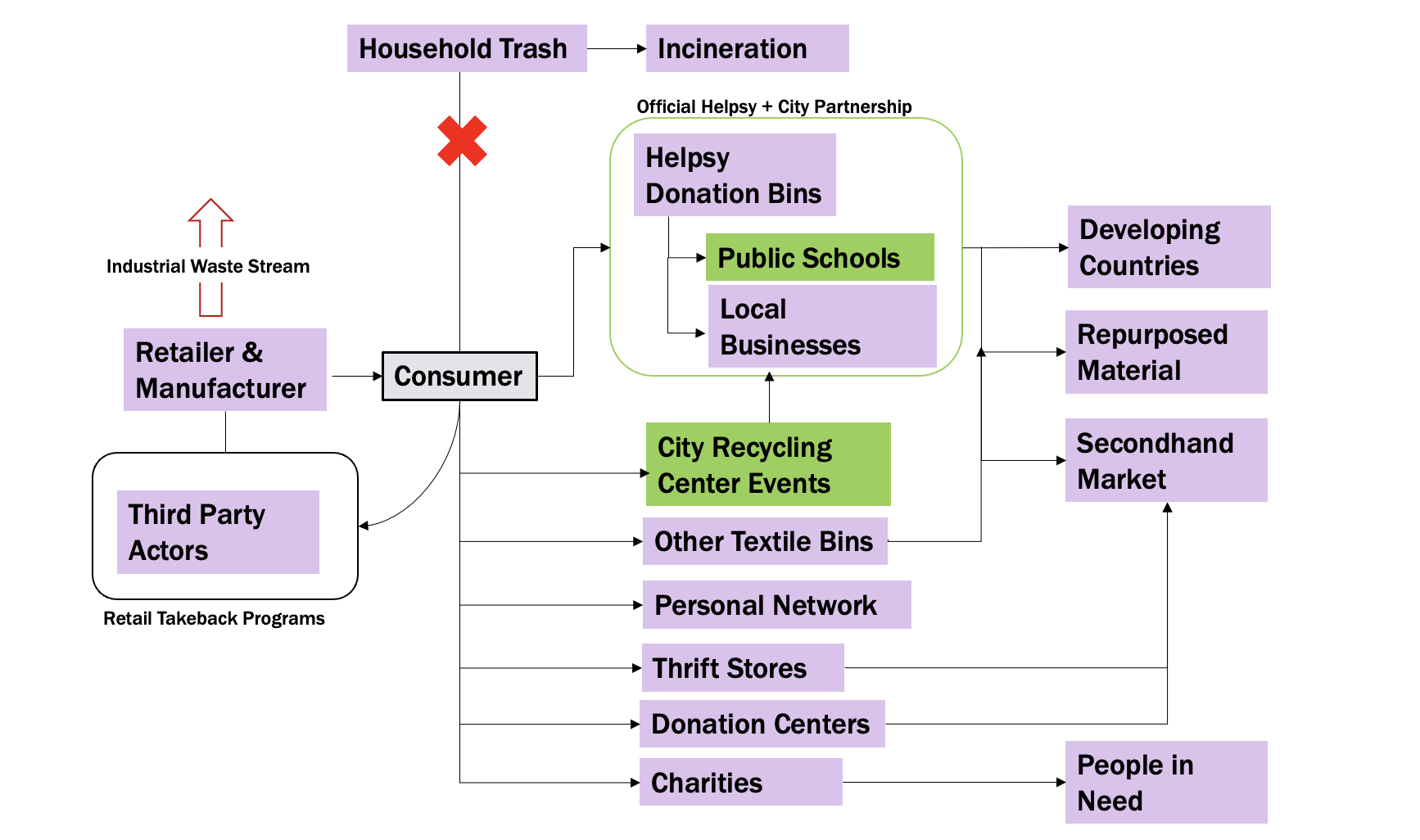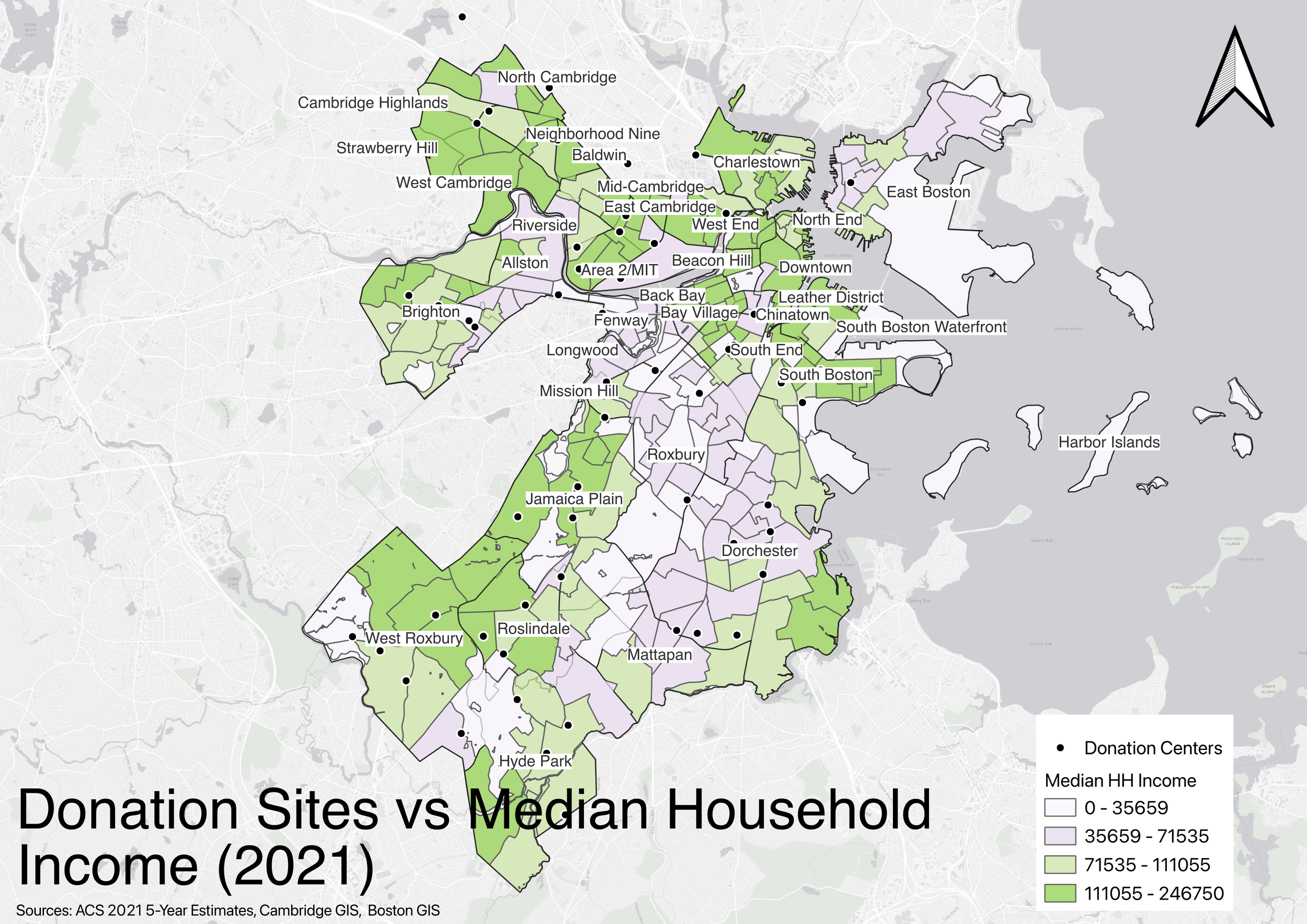Strengthening Consumer and Retailer Responsibility for Textile Reuse and Donation in Cambridge and Boston
Master’s in City Planning Graduate Thesis - May 2023 - Advisor: Lawrence Susskind - Reader: Lily Pollans
Abstract
According to the Massachusetts Department of Environmental Protection (Mass DEP), Massachusetts residents dispose of approximately 230,000 tons of textiles each year. In Boston and Cambridge, almost all household trash is incinerated due to at-capacity landfills. This presents a critical need to divert textile waste towards secondary uses, avoiding the release of greenhouse gases and toxins from the incinerated clothes. Following the 2022 Mass DEP ban on disposing mattresses and textiles in municipal trash, there has been an increased emphasis on textile recycling in the two cities. However, existing strategies for textile reuse focus on the actions of individuals and municipalities which is at great odds with the global scale of textile waste generation.
Through data collection, stakeholder interviews, and policy analysis, this work examines relations and roles of the existing textile landscape’s donation, collection, and resale actors spanning both public and private sectors. Drawing from this investigation, I propose a bundle of recommendations to improve the textile recovery space in three key categories: responsibility and stewardship, educational messaging and outreach, and potential policy actions. To effectively address and reduce the issue of textile waste, this work concludes that clothing manufacturers and retailers must take greater responsibility for end-of-life disposal of textiles. At the same time, individual consumers, residents, and cities must be mindful of consumption, continue to participate in existing textile recovery programing, and advocate for longer term change in material waste culture.


